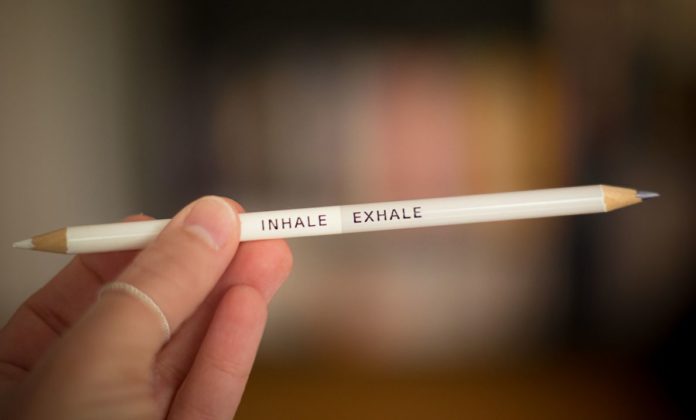I’m sure you’ve heard the expression ‘sleep like a baby’, but it’s best to ‘breathe like a baby’. Science explains…
As we get older, our breathing gets worse, it’s like we ‘unlearn’ breathing, explains Rebecca Dennis, a breathing expert, speaking to BBC News.
This process occurs despite the human lung capacity increases over time, more precisely up to 35 years, and from then on begins to decrease.
According to Dennis, many adults breathe superficially, i.e. they make inappropriate muscle movements, such as moving the neck and shoulders whenever they breathe.
The fact is that, according to several studies, breathing poorly has a direct impact on physical and mental health. When breathing is not performed properly it is normal to feel more tired, apathetic and unfocused, which in turn can increase anxiety and stress.
As such, the therapist suggests a return to the origins: how about breathing in the same way as when you were a baby?
- Does This Mean We Stopped Being Animal and Started Being Human Due to ‘Copy Paste’ Errors?
- The One Lifestyle Choice That Could Reduce Your Heart Disease Risk By More Than 22%
- Aging: This Is What Happens Inside Your Body Right After Exercise
- Immune-Boosting Drink that Mimics Fasting to Reduce Fat – Scientists ‘Were Surprised’ By New Findings
- Gun Violence in America: What They Don’t Talk About at the Debate
The secret lies in the diaphragm
Whenever the baby breathes, breathes deeply. Each inspiration “is made from the abdomen,” Dennis says.
And the secret is in the diaphragm, “the mothership of all respiratory muscles.”
“Many of us are conditioned [from an early age] to contract the belly,” Doctor explains.
Breathing deeply and using the diaphragm, lets more oxygen in the body, and additionally sends messages to the brain keeping us calmer, thus contributing to the reduction of stress.
“We are not aware of how we breathe throughout the day, forget about it or do it superficially,” says the therapist.
How to breathe properly
The BBC notes that the prestigious Mayo Clinic in the United States highlights the importance of learning breathing techniques that help alleviate anxiety, depression and other problems associated with stress, and contribute to regulating key functions in the body.
The Mayo Clinic points out that several studies have found that deep breathing balances the autonomic nervous system, responsible for managing the body’s involuntary functions, such as controlling body temperature or bladder function.
Here are some tips from Mayo Clinic to learn how to breathe properly:
- Take a comfortable posture, close your eyes and focus only on your breathing;
- Inhale deeply, let the abdomen fill with air and expand slightly. Exhale slowly and through the nose;
- Place one hand under the navel and the other on the upper chest. Inhale and exhale deeply through your nose, slowly. You must feel the cold air when it enters the body, and hot when it leaves;
- In order to know if you are breathing through the diaphragm, the hand on your abdomen should move more than the one on your chest. To do this, you need to slowly send air from the nose to the back of the throat and from there to the belly;
- Exhalation should also be slow, allowing the abdomen to empty completely;
- Repeat this breathing cycle paying attention to the abdomen in each one.
